WBH Weekly Digest 2023-12-22: All Westerns are Fairy Stories

My theme this week is around the true value of the romance.
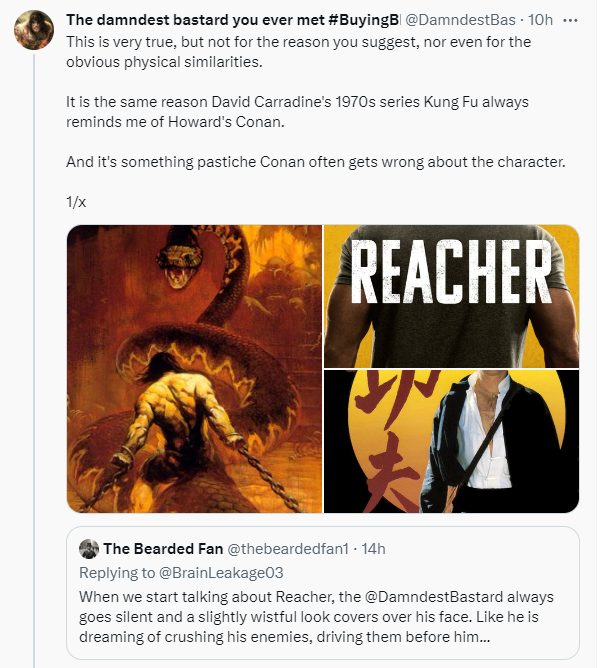
This Twitter thread lays out the mythic reasons why Jack Reacher and Conan are the same character. The mythic resonance goes far beyond their giant, hulking portrayal, as David Carradine's Kung Fu is another representation of the same thing.
A commenter on the thread brings up John Benteen [the pen name of Ben Haas], who wrote two western adventure series featuring a post-Civil War solider of fortune Neal Fargo and half-native Sundance.

Frontier Partisans: The Pulpy Goodness of John Benteen
Haas himself recognized that “All westerns are fairy stories and outlets for impotent people.” Oh, boy, the Cultural Bolsheviks would have a field day with that, wouldn’t they? However, as his son, the sculptor Joel Haas, clarifies, Ben wasn’t referring to men with limp dicks — he was talking about the powerless. Working stiffs didn’t have much control over their lives back in that paperback-pulp heyday, and you could make a pretty good case that we’ve got even less control now. So what’s wrong with a little escape into a fantasy where a badass can take care of business and give some asshole what he’s got coming to him with both barrels? Nothing at all. Not one damn thing.
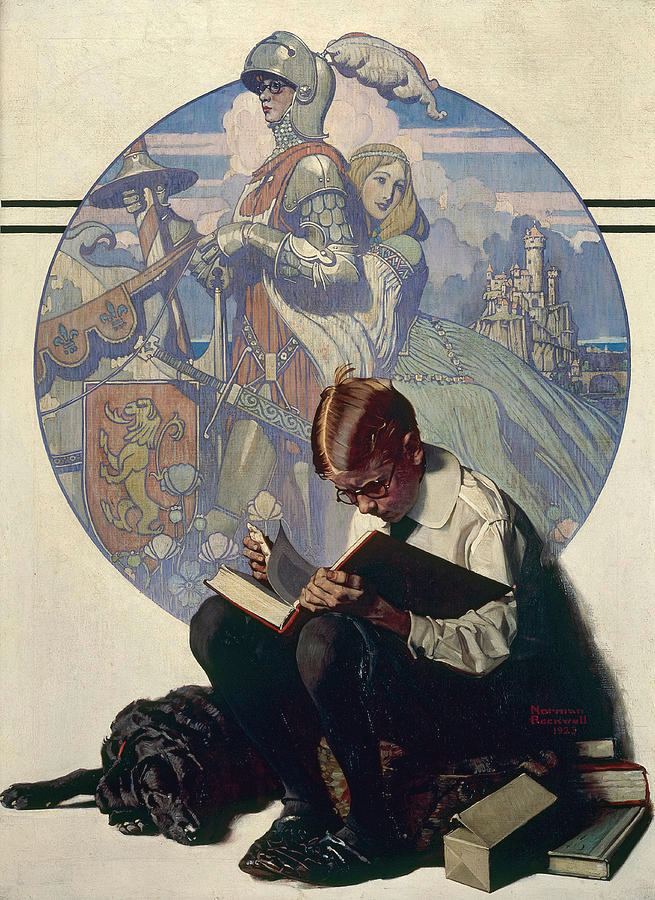
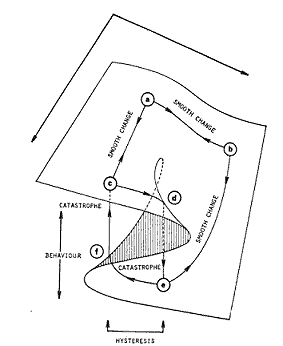
The Long View 2009-02-27: A Surfeit of Incredulities
John J. Reilly's approach was very textual, but I think it would be incorrect to apply the present day term "wordcel" to him, as that word often connotes someone who is under the impression what words construct reality. Rather, and possibly this is a matter of the time and manner of his education, John used words to try to approach the forms and concepts underlying whatever it was he was trying to analyze.
Thus, even though he never worked a problem with science in the way that I would have approached it, I respected his point of view and admired his conclusions.

I used to follow the now sentenced CEO of Nikola, who built a massive facility in Arizona to produce hydrogen-powered trucks. I stopped following him when I figured out this was his eventual destination.

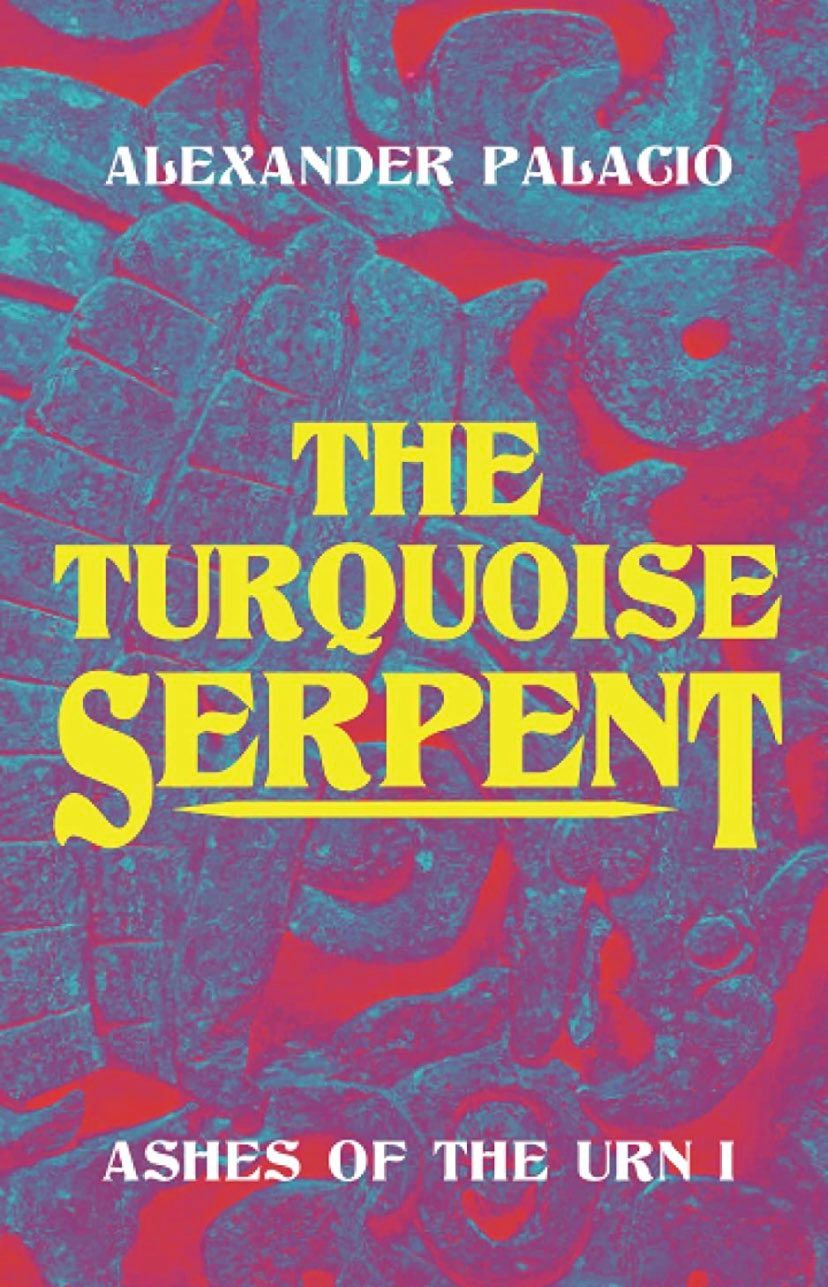
With Both Hands: The Turquoise Serpent
Alexander Palacio's The Turquoise Serpent is R. E. Howard's Conan transposed into a demon-haunted pre-Columbian Mesoamerica, and it is awesome. I imagine a certain fraction of my audience will know exactly what that means without elaboration, but for the rest of you let's dive in and see why this works so well.
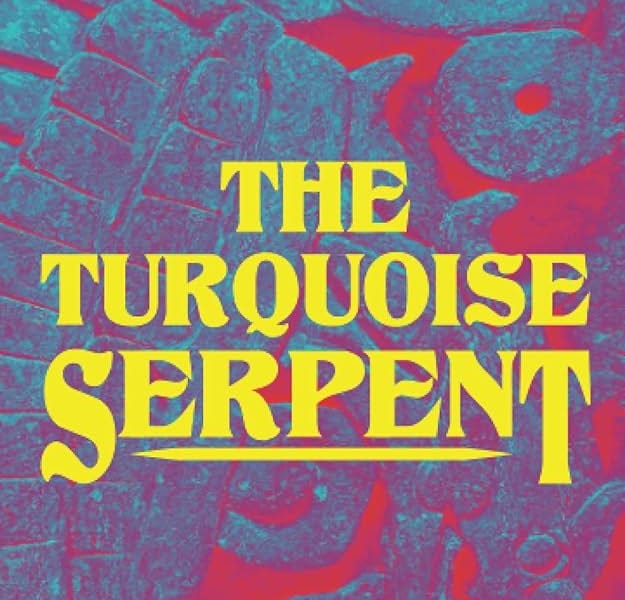
Trantor Publishing: The Warrior and the Wizard
Isaac Young has written a review of Alexander Palacio's The Turquoise Serpent from a slightly different point of view.


Gustavus Aldophus College: A Guide to Speculative Fiction
Twitter user SithKhan pointed me to this. This is a decent catalog of well-known works in science fiction. It has a bias towards the more intellectualized works, which you should guess from the term "speculative fiction", but it is comprehensive enough to include most of the major figures who primarily wrote adventure.
There is also a fantasy section, which is far less good than the sci fi. The divisions in sci fi are reasonably well-defined chronologically, but the fantasy section attempts a more topical organization. Since I don't recognize the division between sci fi and fantasy, I would use the same chronological divisions for organization, as the same currents affected both kinds of wonder stories at the same time.
Also, neither Tim Powers nor R. A. Lafferty appears in the list. That is very odd.

With Both Hands: Chesterton: Introduction to the Book of Job
A perhaps unexpected source of my style of book criticism, and how I understand popular adventure stories, can be found in G. K. Chesterton's essay "Introduction to the Book of Job".
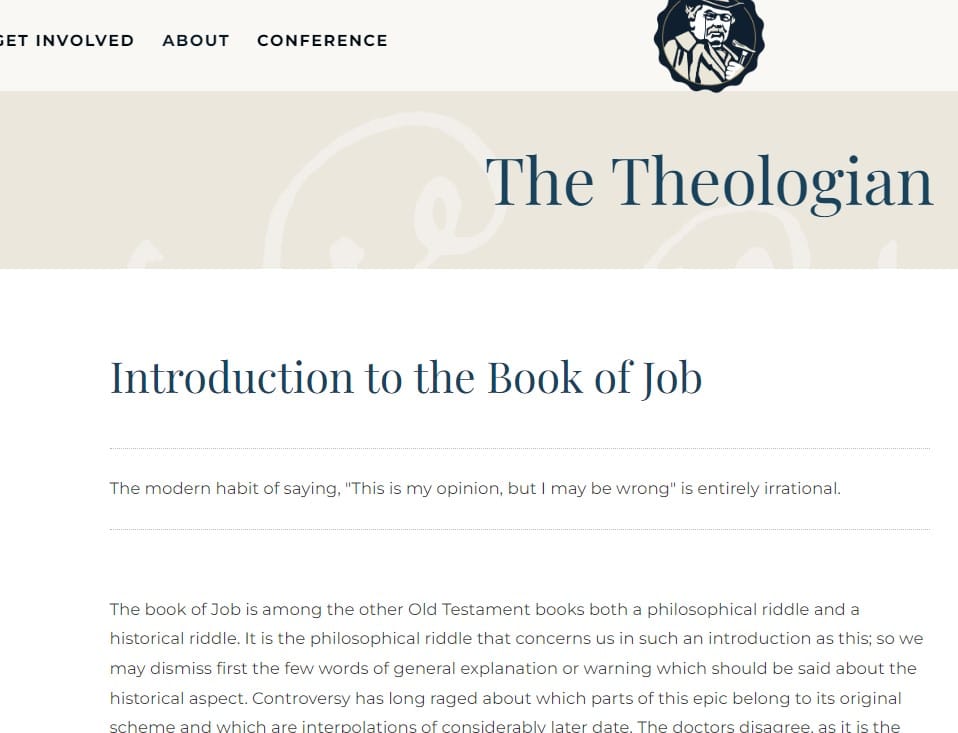
Chesterton.org: Introduction to the Book of Job
And here is the article itself.

Frank J. Fleming: Nuke the Moon
Very 2000s satire on deterrence and foreign policy.






Comments ()